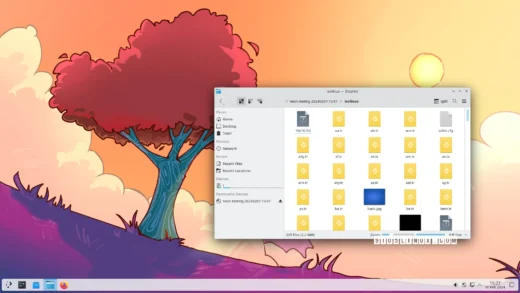Key Points
• Real-time Ubuntu brings industrial-grade timing precision to Linux desktops and servers
• Built with PREEMPT_RT patchset that transforms how the system handles critical tasks
• Available now for developers working on time-sensitive applications like robotics and automation
Real-time Ubuntu: Bringing Predictable Performance to Linux
Ubuntu users now have access to a powerful new capability that could transform how they build time-critical applications. Real-time Ubuntu represents a significant step forward for developers working on systems where timing matters everything – from robotics to industrial automation to financial trading platforms.
At its core, Real-time Ubuntu is standard Ubuntu with a special real-time kernel. This kernel includes the PREEMPT_RT patchset, which modifies how Linux handles task scheduling. The traditional Linux scheduler gets replaced with a priority-based system that ensures critical tasks run when they need to, not just when the system gets around to them.
For most desktop users, this difference might not be noticeable. But for developers building systems that must respond within strict time limits, it’s revolutionary. Real-time Ubuntu can guarantee that important processes won’t be interrupted by lower-priority system tasks, something standard Linux cannot promise.
The implications for Ubuntu’s ecosystem are substantial. Canonical has made real-time capabilities available directly through their standard software repositories, meaning Ubuntu users can now enable real-time features without switching to specialized distributions or manually compiling kernels. This integration makes real-time Linux far more accessible to mainstream developers.
Industries that rely on precise timing stand to benefit significantly. Manufacturing systems, medical devices, autonomous vehicles, and network infrastructure all require predictable response times. Real-time Ubuntu brings these enterprise capabilities to any developer’s workstation, democratizing access to technology previously reserved for specialized embedded systems.
The real-time kernel works by ensuring that high-priority tasks can interrupt almost anything else running on the system. This preemptive behavior guarantees that critical operations execute within their required time windows, even under heavy system load.
Getting started with Real-time Ubuntu involves enabling the real-time kernel through standard package management tools. Users can switch between regular and real-time kernels without reinstalling their entire system, providing flexibility for developers who need real-time capabilities only for specific projects.
This development strengthens Ubuntu’s position in the industrial and embedded Linux market. By integrating real-time capabilities directly into their mainstream distribution, Canonical is making Ubuntu more competitive with specialized real-time operating systems that typically cost significantly more.
For open-source advocates, Real-time Ubuntu demonstrates Linux’s continuing evolution. The PREEMPT_RT patchset has been developed as open-source software for years, and its integration into Ubuntu shows how community-driven development can deliver enterprise-grade features.
Developers working on time-sensitive applications should explore what Real-time Ubuntu can do for their projects. The barrier to entry for real-time development has never been lower in the Linux ecosystem.
Upgrade your life with the Linux Courses on Udemy, Edureka Linux courses & edX Linux courses. All the courses come with certificates.








